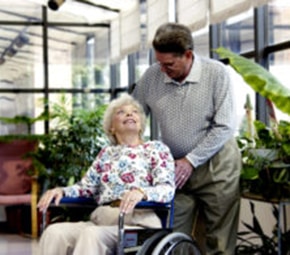Many Americans today are facing situations where they’re sandwiched between their children and parents as caregivers. Caregivers may come to realize they can no longer provide the level of care their senior loved one requires – and this is where assisted living facilities can help. These facilities are designed to provide seniors with a safe home where they can live their best lives under the care of trained professionals.
However, this decision can be a tough one to make for both seniors and their families. Here are just a few questions to ask when choosing an assisted living facility to keep in mind while touring potential assisted living facilities to make sure that you and your loved one choose the perfect new home:
- Can we tour the facility? – While you may be able to do extensive research online, nothing will really be a better indicator as to whether or not the facility is the right choice for your loved one than an in-person tour. Visiting the facility will let family members assess the overall quality of life there, facility cleanliness, and mood of other residents.
- What are the actual rooms or units like? – Family members and friends obviously want to make sure that their loved one is comfortable in their new home, so take the time to understand the different options available at each facility. What are the different types and sizes of available rooms? Does it come with a kitchen and a private bathroom?
- How secure are the facilities? – It may seem like an odd question to ask, but some seniors require a bit more vigilant attention than others and security is very important. Family members and friends should also ask about additional safety precautions, emergency plans, and accessibility.
- What are the accepted forms of payment? – One of the deciding factors for many families is the cost of the assisted living facility. Medicare does not pay for these kinds of services and Medicaid will only help after the senior’s assets fall below a certain level, which means that many families end up personally paying for it. While touring the facilities and meeting with staff, be sure to ask about the accepted forms of payments.
Would you like to learn more about assisted living? Contact Angels Senior Living today to have all of your questions answered!






